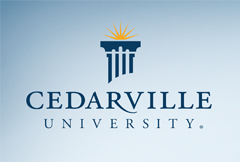Keywords
Ethics, human trafficking, slavery, forced prostitution, sex trafficking
Abstract
Despite legislation to protect individuals from slavery and forced prostitution, many continue treating people as property. The Fourteenth Amendment states that persons have the right to “life, liberty, and property,” and U.S. society has never regarded persons as property. Unfortunately, some ethics do not consider all human beings as persons. Personhood denotes being a member of the “moral community.” I base personhood on an ontological perspective, meaning that all human beings are human persons. I also believe that there is no such thing as a “potential person” or a “human non-person” regardless of disability, race, ethnicity, gender or any other attributes one could list in order to define personhood.
I know that not everyone shares my beliefs. Genocides, rapes and murders occur all over the world, and those who commit these crimes cannot be in agreement with my own convictions. So I must ask the question, what happens when people treat others as property rather than people, when people use one another as a means to an end? In 2006, the U.S. State Department estimated that 600,000 to 800,000 people are trafficked globally every year. Within this estimate, approximately 80% are women and girls, and up to 50% are children4.
DOI
10.15385/jce.2008.8.1.2
Recommended Citation
Jones, Hillary
(2008)
"An Internal Ethical Revolution,"
CedarEthics: A Journal of Critical Thinking in Bioethics: Vol. 8:
No.
1, Article 2.
DOI: 10.15385/jce.2008.8.1.2
Available at:
https://digitalcommons.cedarville.edu/cedarethics/vol8/iss1/2
Creative Commons License

This work is licensed under a Creative Commons Attribution-Noncommercial-No Derivative Works 3.0 License.
Disclaimer
The CedarCommons repository provides a publication platform for fully open access journals, which means that all articles are available on the Internet to all users immediately upon publication. However, the opinions and sentiments expressed by the authors of articles published in our journals do not necessarily indicate the endorsement or reflect the views of Digital Services, the Centennial Library, or Cedarville University and its employees. The authors are solely responsible for the content of their work. Please address questions to the Digital Services staff.
Copyright
© 2008 Hillary Jones. All rights reserved.
